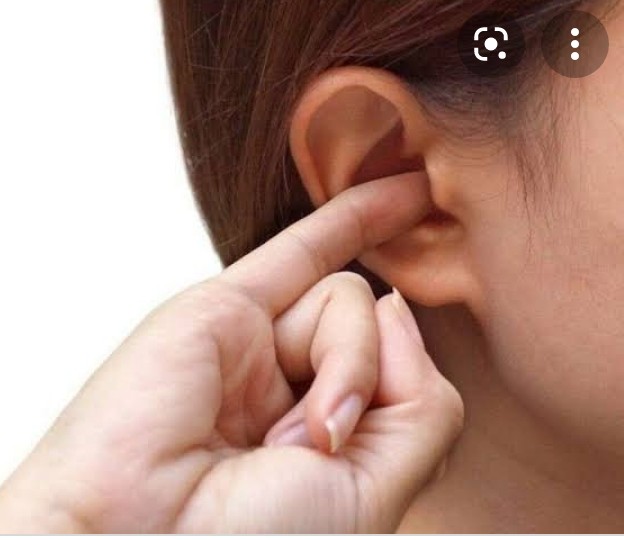
Itching ear
By MaryAnn De Pietro
Causes and symptoms
Diagnosis
Treatment
Home remedies
Contacting a doctor
Summary
It is not uncommon to occasionally hear a strange sound in the ears, such as popping, ringing, hissing, buzzing, or crackling.
Various conditions can cause crackling in the ear, and it is not usually a sign of anything harmful. However, if it frequently occurs, it can affect a person’s quality of life and may indicate an underlying issue.
Causes and symptoms
Many people experience crackling in their ears occasionally. For example, pressure from altitude changes can lead to crackling or other uncomfortable effects in the ears.
Some other causes of crackling in the ears include:
Impacted earwax
The ear canal secretes wax to protect the structures of the ear canal from germs and other foreign particles. The ears are self-cleaning. Chewing and jaw motion help transport earwax and dead skin cells from the eardrum to the ear opening, where it dries and falls out.
According to the Hearing Loss Association, items placed in the ears — such as earplugs, hearing aids, and earbuds — may increase the buildup of earwax and prevent the natural flow of wax out of the ear canal.
When earwax accumulates, it may cover the eardrum and lead to a crackling sound.
Some additional symptoms of impacted earwax include:
ear pain
itching inside the ear
coughing
a feeling of fullness in the ear
a change in earwax color
muffled hearing
Eustachian tube dysfunction
The eustachian tubeTrusted Source is a narrow passageway that connects the middle ear to the throat or back of the nose or nasopharynx. There is one tube in each ear.
These tubes prevent air pressure and fluid from building up in the ear. Maintaining correct ear pressure prevents the eardrum from bulging inward or outward incorrectly. The pressure behind the eardrum should be the same as the pressure outside the eardrum.
Normally, the eustachian tubes remain closed and only open up when a person swallows or yawns. Blocked tubes and those that do not open or close correctly can lead to eustachian tube dysfunction.
Eustachian tube dysfunction is fairly common. It occurs in about 4% of adults worldwide and is even more common in children and people with underlying craniofacial conditions.
In addition to crackling in the ears, some other symptoms may include:
itchiness or tickling inside the ear
pain in and around the ear
a feeling of fullness in the ear
muffled hearing
These tubes may become blocked due to:
seasonal allergies
sinus infections
common cold infections
Ménière’s disease
Ménière’s disease affects the inner ear and leads to dizziness. It may involve one or both ears. The condition can affect anyone, but it more commonly affects people aged 20–50.
Symptoms of Ménière’s disease may include:
dizziness
hearing loss
a feeling of fullness in the ear
tinnitus, a roaring, buzzing, or ringing in the ears
Episodes can last from 20 minutes up to 2 hours.
Temporomandibular joint and muscle disorders
Temporomandibular joint and muscle (TMJ) disorders are a group of conditions involving pain and dysfunction in the jaw muscles and joints.
There are three broad categories of TMJ disorders:
myofascial pain, which causes discomfort or pain in the jaw muscles
internal derangement of the joint due to a dislocated jaw, injury to the lower jaw, or displaced TMJ disc
inflammation and degeneration due to arthritis
Symptoms of TMJ disorders can include a crackling sound in the ears, along with:
headaches
jaw pain
stiffness in the jaw
limited movement of the jaw
increased pain when chewing
severe pain or feeling of fullness in the ear
jaw popping and clicking
Diagnosis
To diagnose the cause of ear pain, crackling, or other ear symptoms, a doctor starts by conducting a physical exam and taking a medical history.
During the exam, the doctor looks inside the ears using an otoscope. In some cases, they can make a diagnosis based on a person’s medical history and this exam alone.
In other instances, specialized tests, such as hearing tests, can help determine a diagnosis.
Treatment
Treatment is not always necessary for crackling in the ears, especially if this symptom only occurs occasionally.
Treatment options depend on the underlying cause and may include:
Ear drops: Ear drops may help soften the wax inside the ear for easy removal.
Manual earwax removal: A doctor may use different methods to remove earwax.
Placement of ear tubes: A doctor can place tubes in the eardrums to equalize pressure in the ear and drain fluid. In some instances, the insertion of a small balloon catheter opens up the eustachian tubes, treating dysfunction.
A bite guard: Bite guards sometimes provide relief for people with TMJ disorders. Surgery for TMJ disorders is a last resort and not always successful.
Antibiotics: A doctor may recommend antibiotics such as amoxicillin for severe ear infections or those that last longer than 2–3 days.
Home remedies
Home remedies for crackling in the ears include:
Using a nasal flush: Using a salt water flush in the nose can remove excess mucus from the sinuses.
Trying over-the-counter (OTC) decongestants: OTC decongestants may help reduce mucus and fluid contributing to problems with the eustachian tubes, but people should only use them for 3 days at most as they can lead to addiction and rebound congestion.
Removing earwax: Most earwax blockages are treatable with home remedies that soften the wax. For example, placing a couple of drops of baby oil or mineral oil into the ears can soften hard wax and allow it to flow naturally out of the ear.
Treating allergies: Allergies can sometimes lead to ear and eustachian tube problems. Treating these can help.
Not using cotton swabs: Pushing a cotton swab too far into the ear can lead to impacted earwax.
Exercises: Physical therapy exercises may help TMJ. These include jaw strengthening and stretching exercises and postural work. Manual therapy can also stretch the soft tissues and muscles, increasing motion.
Avoiding stress on the jaw with TMJ: This includes limiting chewing and avoiding things like chewing gum.
People should not use cotton swabs, bobby pins, or ear candling to try and treat congested ears.
When to contact a doctor
Crackling in the ears does not always require treatment. In many cases, these sounds go away on their own or with certain home remedies.
However, people with the following symptoms should speak to a doctor for a full diagnosis and treatment recommendations:
crackling sounds that are severe or occur daily and negatively impact their quality of life
signs of an ear infection, such as a fever or pain
symptoms that keep coming back
fluid draining from the ear
hearing loss
Summary
Crackling in the ears is not usually harmful if it only happens occasionally. However, people with frequent or severe symptoms should speak to a doctor for a diagnosis.
Possible underlying causes include impacted earwax, Eustachian tube dysfunction, myoclonus, and TMJ disorders.
Certain home remedies may reduce mild symptoms. When these do not help, and the crackling persists, medical treatment can help.
Source: MNT






